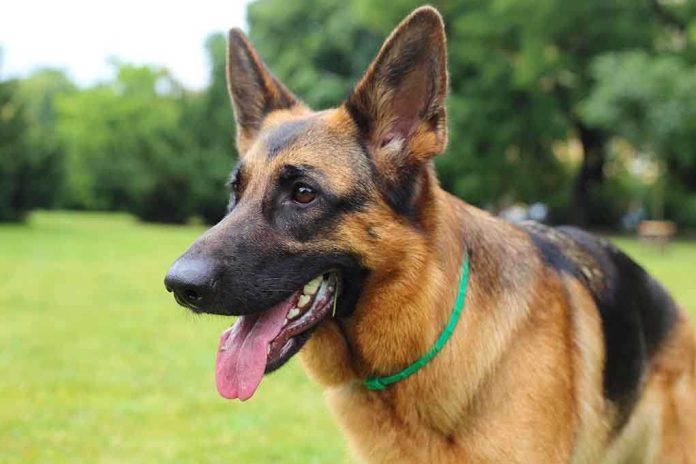
Celebrity, law, and canine chaos collide when Tyrese Gibson’s dogs allegedly killed a neighbor’s pet, raising the question: How far does fame shield, or expose, a star when public safety is at stake?
Story Highlights
- Fast & Furious actor Tyrese Gibson faces an arrest warrant after his Cane Corsos allegedly killed a neighbor’s dog.
- Multiple previous complaints were filed against Gibson’s dogs for escaping and causing disturbances before the fatal incident.
- The case tests the limits of celebrity accountability and community safety in Atlanta.
- Law enforcement insists on securing the dogs, while Gibson’s attorney claims cooperation and rehoming of the animals.
The Anatomy of a Celebrity Animal Control Crisis
Tyrese Gibson, best known for his high-octane roles, now finds himself center stage in a very different kind of drama: an arrest warrant issued after his four Cane Corsos allegedly mauled and killed his neighbor’s dog in Atlanta. This was not an isolated event. Police records show a string of calls and warnings about Gibson’s dogs escaping and menacing the neighborhood. Each incident chipped away at the sense of suburban security. Prior warnings, ignored or unheeded, set the stage for the mid-September tragedy. As Gibson’s reputation revved in Hollywood, his Atlanta neighborhood simmered with concern.
When police attempted to serve Gibson with a citation in late September, he was not home. Instead, the case escalated with law enforcement speaking to his attorney, instructing Gibson to turn himself in. The deadline came and went. As October dawned, headlines announced not just the death of a dog, but the birth of a legal standoff between a celebrity and his community.
Community Safety and the Weight of Fame
The presence of large, powerful breeds like Cane Corsos in residential neighborhoods is not new, but the Gibson case underscores the heightened stakes when a prominent figure is involved. The breed’s reputation for strength and protectiveness can quickly become a flashpoint when management lapses. Fulton County Police, responsible for public safety, made their priorities clear: “Our priority is the safety of the community… that’s why we want the dogs in custody,” said Captain Nicole Dwyer. The escalation to a criminal warrant, after months of warnings, signals a shift from tolerance to enforcement.
Gibson’s attorney, Gabe Banks, contends that the actor was not home during the incident and has since rehomed the dogs to a safe environment. The attorney’s narrative is one of cooperation. Yet, the warrant remains active, and the community watches closely. The tension between celebrity privilege and neighborhood safety, always simmering, has reached a boil.
Accountability, Precedent, and the Celebrity Factor
Repeated animal control violations rarely reach this level of public scrutiny unless a household name is involved. For Atlanta’s residents, the incident is more than a headline; it’s a test of whether the law applies equally, regardless of fame. While details about previous attacks are scarce, the pattern of calls and warnings paints a picture of escalating risk—one that law enforcement could no longer ignore after the fatal attack. The current status: Gibson’s compliance is pending, the dogs are reportedly rehomed, and the legal process grinds on.
Gibson faces immediate legal consequences and a fresh round of media attention. The case may reshape local animal control enforcement and spark debate over breed-specific legislation and owner accountability. The neighbor who lost a pet may pursue civil litigation, amplifying the personal and financial stakes for Gibson. For the Atlanta community, the tragedy is a reminder of the delicate balance between animal rights, owner responsibility, and public safety.
Expert Analysis: Law, Responsibility, and Public Perception
Animal control experts consistently emphasize the need for responsible ownership, especially with breeds known for their physical power. The legal system’s challenge is balancing individual rights with community welfare. Media analysts observe that celebrity status can both protect and expose, intensifying public reactions and influencing legal strategy. The Gibson case has united advocates for stricter enforcement with those who worry about breed discrimination, echoing a broader national debate.
Law enforcement and Gibson’s legal team have issued carefully worded statements, each trying to shape public perception. Official sources confirm that all claims—from the timeline to the warrant and rehoming of the dogs—are substantiated by direct communication with police and attorneys. For now, the warrant remains, Gibson’s next move awaits, and Atlanta’s residents remain acutely aware that fame, for all its privileges, offers no immunity from the law—or from a neighbor’s grief.
Sources:
ABC News – Arrest warrant issued for actor Tyrese Gibson









